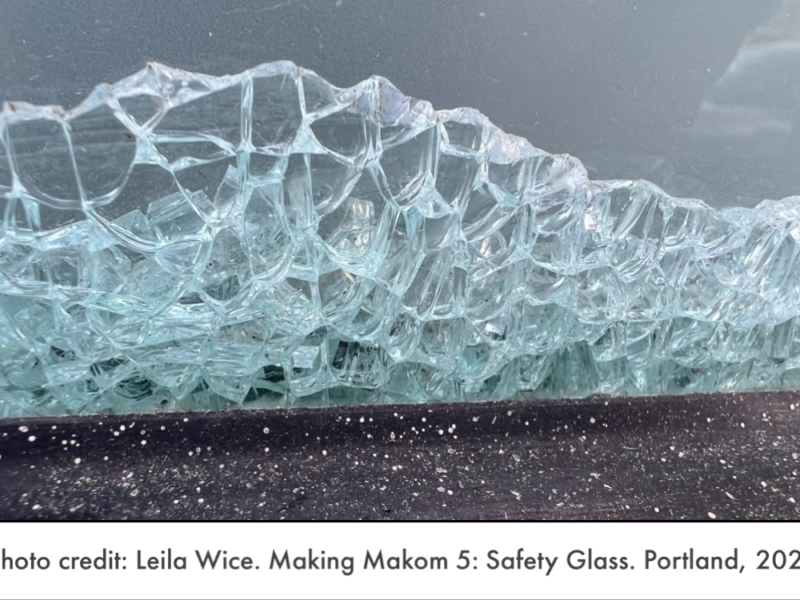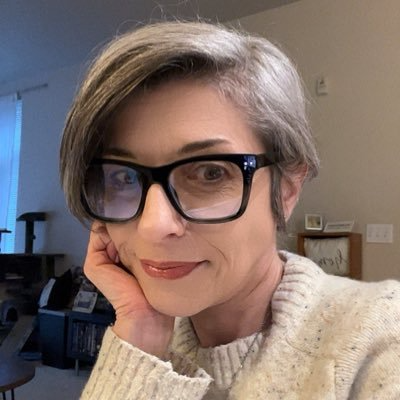“All memory is imperfect,” declares playwright Miriam Feder. Her newest play, Ephemory, which will debut in November, explores the fragility and legacy of memory as it plays out in the relationship between a mother and daughter. The mother, Carole, is slowly losing her memory to dementia, while her daughter, Ruth, struggles to capture her mother’s personal history before it slips away forever. Feder describes Ephemory as “a coming of age/falling through age story about memory, legacy, family, immigration, war and love.”
This subject matter is familiar territory for Feder, who shared a similar experience with her own mother, who died of Alzheimer’s disease two years ago. “As part of the family system, you immediately realize how ephemeral memory is; you take it for granted,” says Feder. “When memory starts to leave, there’s an urgency to share and pass on.”
Carole’s history mirrors that of Feder’s mother in several ways: both left Europe in 1938 while still in their teens and traveled alone to New York. Both lost most of their family in the Holocaust. While Feder knew the broad outlines of her mother’s story, there were many gaps that remained unfilled. “There’s a lot I wish I’d asked her before it was too late,” says Feder. “I wish I had more details about small things, like what it felt like to be tired in a small room, and living with the constant uncertainty about her family’s fate after she moved to New York. And there were smaller details, like what she ate for breakfast, how she got to work, how she waited for the subway, how people spoke.”
Perhaps because the arc of the narrative so closely parallels Feder’s own experience, she found it difficult to fill in the gaps in her mother’s story. The unknown details posed challenging obstacles. “I almost had to give myself permission to make things up,” says Feder. Interestingly, Carole’s dementia gives Feder some freedom to use her imagination. “The idea of dementia means things don’t have to be literally true,” Feder explains.
Although Carole’s memory loss is the main fulcrum around which the play pivots, Ephemory is not the story of a medical diagnosis. “It’s a powerful, inspirational story about living a life, even when that life doesn’t turn out the way you planned,” says Feder. “There are big themes in this play: the meaning of family and the impact of war and other world events. I relate to the daughter Ruth, who encourages her mother to share the legacy. She is like me. Audiences will relate to Carole because it’s her life being played out.”
Throughout the play, Feder uses what she calls “time episodes” as transitions from one scene to another. “They’re periods that aren’t scripted. They use light and movement and music to express things that are difficult to articulate in words.” These episodes, which have no dialogue, began as improvisations by the actors during rehearsals, and slowly evolve into movement. The time episodes solve some logistical problems Feder encountered, like how to evoke World War II without making the play a war story, or how to capture the energy of New York City.
Feder hopes Ephemory will inspire the audience, regardless of their age, to talk to aging relatives about their lives. “I think people in midlife will relate to the issues of elderly parents and the loss of their stories; hopefully they won’t let that happen.”
EPHEMORY
Written by Miriam Feder, directed by Debbie Lamedman
WHEN: opens Nov. 9;
continues Nov. 10, 11, 15, 16, 17, 18, 21, 23, 24 and 25
LOCATION: The Headwaters Theatre, 55 NE Farragut St., No. 9.
INFORMATION: www.miriamfeder.com/work-in-progress-
Elizabeth Schwartz is co-host of the Yiddish Hour on 90.7 FM KBOO Community Radio and a freelance writer living in Portland.





